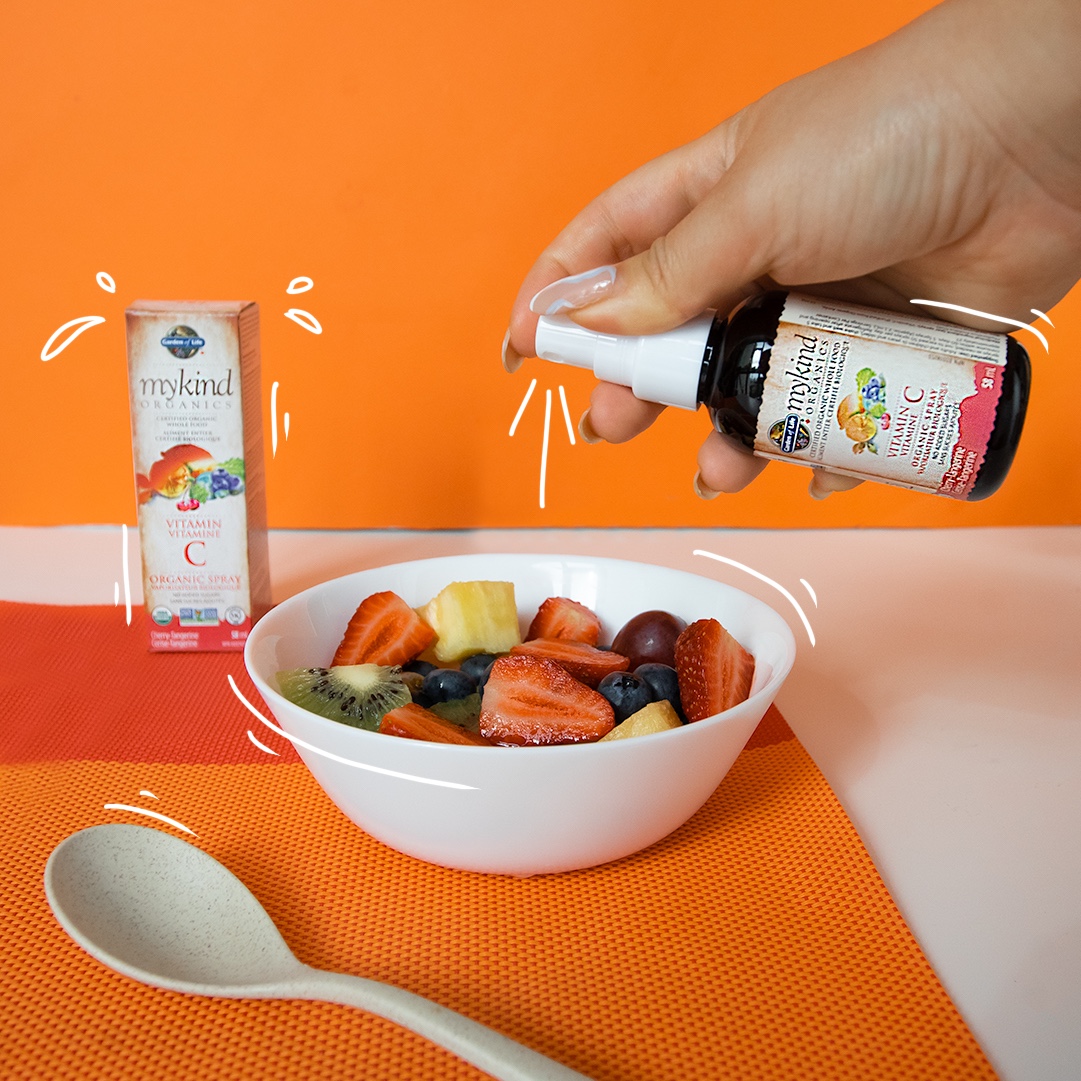With cold and flu season around the corner, it’s that time of year when many of us start stocking the cupboards with vitamin C supplements.

But if you wait until you feel the tell-tale runny nose and tickly throat before you start taking vitamin C, is that really going to ward off a cold?
“To prevent colds and flus, you should enhance your body’s capacity to deal with it,” says Dino Halikas, a certified naturopath and educator at Garden of Life Canada.
In partnership with Garden of Life Canada, we asked Halikas and a certified nutritionist whether big doses of supplements actually help — and got tips on what to do to keep your body feeling good this winter.
What vitamin C does in the body
What exactly does vitamin C do when it comes to cold and flu? “We usually think of it supporting the immune system, which it does. It’s an antioxidant, especially in the whole way that it comes from foods,” says Amber Vitale, a certified nutritionist and the North American educator at Garden of Life Canada.
Vitamin C is also important in repair, particularly in the body’s tissues, Vitale says, and helps support things like joint repair, skin elasticity, connective tissue integrity and more.
While the recommended daily allowance is between 60 and 90 milligrams, Vitale adds that personal lifestyle choices dictate how much more vitamin C you might want to take. “That recommendation is just basic disease prevention,” she says. “As people who are focused on diet and optimal living, we want to look at optimum health. You have to look at each person’s situation and the load on their bodies, such as if they’re stressed or if they’re a smoker.”
READ MORE: Pharmacists fear busy flu season as COVID-19 cases rise
Getting support from supplements besides vitamins
You may want to consider adding a different kind of supplement to boost your health. “You can start with probiotics. Health starts with having a good balance of bacteria in your gut, and that can have a big impact on your immune system,” Halikas says. “About 75 to 80 per cent of your immune cells are in your gut.”
Vitale adds that omega-3 fatty acids are also beneficial for building your optimal health. “They support your immune system and are an important part of managing your immune responses,” she says.
How to manage other lifestyle factors
While supplements support health, Vitale says, food is a more well-rounded way to get immune-boosting substances. That means considering a diet that includes nuts and seeds, fish and egg yolks (for omega-3s); yogourt or kefir (for probiotics); and oranges, red peppers, kiwi fruit and strawberries (for vitamin C).
“The days are gone of taking 5,000 milligrams of vitamin C a day because we’re so worried about getting a cold or flu,” Vitale says. “It’s much better to take smaller, food-size doses frequently throughout the day.” If you want to supplement, she suggests choosing one that’s sourced from whole foods, as those can be easier to digest.
Managing other lifestyle factors can also help the immune system out. “Get outside. That is the number one recommendation. You expose yourself to light and breathe non-indoor air, and it helps with our neurotransmitters and our melatonin production,” Vitale says. “It’s going to work with your sleep and wake cycles, and getting a good night’s sleep is extremely important to your immune system. As much as we can take supplements, it’s our lifestyle that’s so important. If you’re not sleeping or managing stress, you’re just holding the line with your supplementation.”
READ MORE: 6 cold weather myths you should not believe
Find out more about vitamin C and other supplements that can help support your immune system at Garden of Life Canada.

